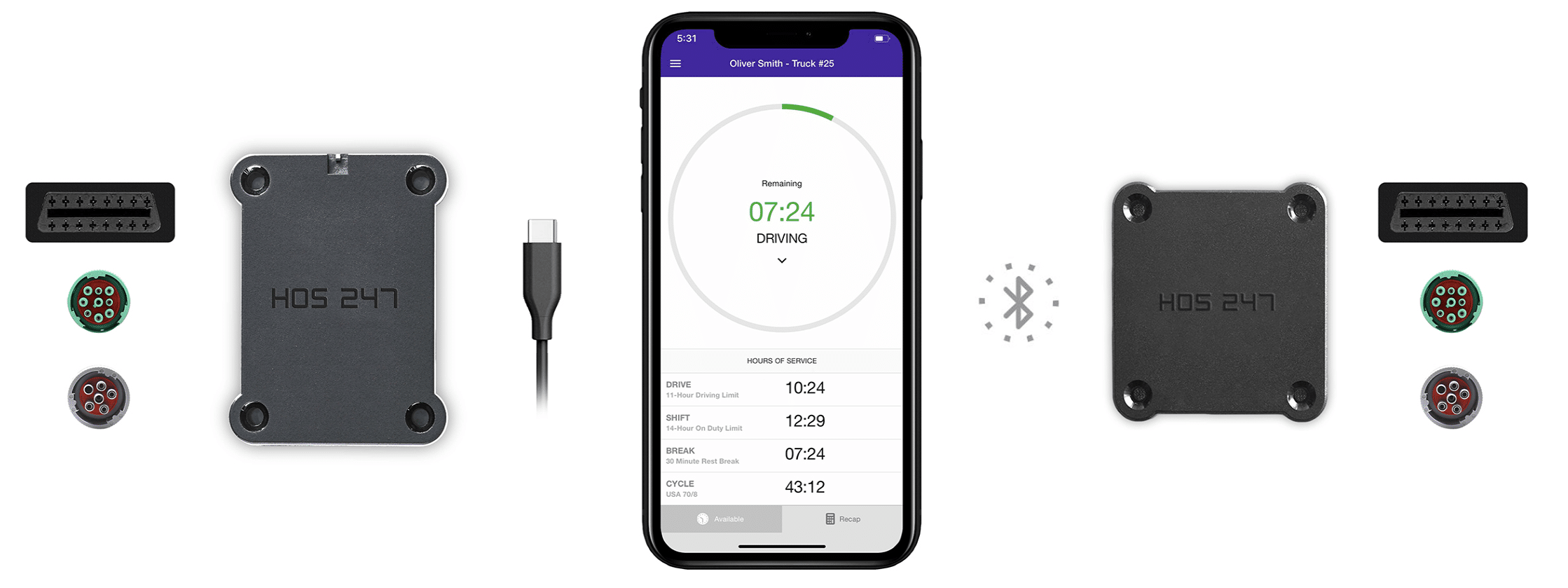Navigating the maze of Federal Motor Carrier Safety Administration (FMCSA) regulations can feel like driving through thick fog with a bad set of headlights. For truckers, one of the most persistent areas of confusion is the Electronic Logging Device (ELD) mandate and its exemptions. You’ve likely heard conflicting advice at truck stops or read confusing information online. Do you really need an ELD for your older rig? What qualifies as a “short-haul” operation? Relying on guesswork can lead to costly fines, frustrating roadside inspections, and even out-of-service orders.
This guide is designed to cut through the noise. We’re here to provide clear, straightforward answers for owner-operators and fleet managers who are either buying their first ELD or looking to switch from a provider that isn’t meeting their needs. We will demystify the six major elog mandate exemptions, explain the specific documentation you need to carry, and discuss how to stay compliant without the headache. By the end of this article, you’ll have the confidence to know exactly where you stand and make the best decision for your operation.
Understanding the ELD Mandate Basics
Before diving into the exceptions, it’s crucial to have a solid grasp of the rule itself. The ELD mandate is a federal regulation that requires most commercial motor vehicle (CMV) drivers, who are required to maintain Records of Duty Status (RODS), to use an Electronic Logging Device.
What is an ELD?
An electronic logging device, or ELD, is a piece of hardware that connects directly to a vehicle’s engine control module. It automatically records driving time, engine hours, vehicle movement, miles driven, and location information. In simple terms, it’s a digital, automated version of the traditional paper logbook, designed to be more accurate and harder to manipulate.
Why Does the Mandate Exist?
The primary goal of the ELD mandate, according to the FMCSA, is to improve road safety. By ensuring more accurate compliance with Hours of Service (HOS) regulations, the rule aims to reduce driver fatigue — a leading cause of accidents in the trucking industry. It creates a safer environment for all drivers and makes it easier for enforcement officials to verify HOS compliance during inspections.
Basic Compliance Requirements
The default rule is straightforward: if you operate a CMV and are required to keep a logbook (RODS), you must use a registered, compliant electronic logbook. This device tracks your duty status and ensures you don’t exceed the legal driving limits. However, the rule isn’t absolute. The FMCSA has identified specific situations where an ELD is not required. Understanding these exemptions is the key to maintaining compliance without unnecessary costs or technology, and that’s exactly what we’ll explore next.
Do you have any questions? Talk to ELD Advisor: 650-405-3372 or Request Callback
The 6 Major Elog Exemptions Explained
While the ELD mandate is the general rule, it’s not a one-size-fits-all regulation. The FMCSA has carved out specific exemptions for certain vehicles, drivers, and operational types. Understanding these is the first step to ensuring you’re compliant without spending money on a device you may not legally need.
Here’s a detailed breakdown of the six primary federal ELD exemptions.
1. The Pre-2000 Engine Exemption
The elog mandate exemption for older vehicles is one of the simplest to understand, yet frequently misunderstood. It’s not determined by the age of the truck’s cab or chassis, but specifically by the model year of the engine.
The rule. Drivers of commercial motor vehicles with engines manufactured before model year 2000 are not required to use an ELD.
Documentation. Your primary proof is the vehicle’s registration, which typically lists the engine model year. It’s critical to have a legible copy of this document in your vehicle at all times. An officer at a roadside inspection will use this document to verify your exempt status.
Engine swaps. Be careful here. If you have a 1998 truck but you swapped the engine with a model from 2005, your vehicle is no longer exempt. The exemption is tied directly to the engine currently in the vehicle, not the vehicle’s VIN.
Common misconception. Many drivers believe the exemption is based on the Vehicle Identification Number (VIN) or the truck’s model year. This is incorrect. A 2004 truck could be exempt if it has a rebuilt 1999 engine, while a 1995 truck would require an ELD if it was repowered with a 2002 engine.
2. The Short-Haul Exemption
This exemption is for drivers who consistently operate within a limited geographic area. It’s often used by local delivery, construction, and utility service drivers.
The rule. Drivers who operate within a 150 air-mile radius of their normal work reporting location are exempt. An “air-mile” is a straight line, not road miles, so be sure to account for that.
14-hour duty limit. To qualify, you must also complete your workday within 14 consecutive hours and start and end your day at the same location.
Documentation. Instead of a logbook, you must maintain accurate time records. Your motor carrier must record your time in, time out, and the total number of hours per day. These records must be maintained for six months.
Breaking the exemption. If you exceed the 150 air-mile radius or the 14-hour duty limit, the exemption is broken for that day. You must then complete paper RODS for that day. If you break the exemption more than 8 days in any rolling 30-day period, you will be required to use an ELD.
3. The 8-Day RODS Exemption
This exemption is designed for drivers who only occasionally need to keep a Record of Duty Status.
The rule. If you are not required to keep RODS on a regular basis, you are not required to have an ELD, provided you do not need to log your HOS for more than 8 days within any rolling 30-day period.
Tracking the rolling period. This is crucial. It means you must always be able to look back at the previous 30 consecutive days from the current day to count how many times you’ve had to fill out a log.
Paper logs. On the days you are required to log your HOS, you can use standard paper logs. However, the moment you need to create a log for the 9th day in a 30-day period, you must start using an ELD.
4. The Agricultural Commodity Exemption
This exemption provides flexibility for the unique demands of farming and agriculture, especially during planting and harvesting seasons.
The rule. This exemption applies to the transportation of agricultural commodities — including livestock, unprocessed agricultural products, and farm supplies — within a 150 air-mile radius from the source of the commodities.
Planting and harvesting seasons. During seasons designated by the state, the HOS rules may not apply at all for drivers operating within the 150 air-mile radius. It’s vital to know your state’s specific seasonal dates.
“Source” and empty miles. The 150 air-mile radius is measured from the farm or distribution point where the commodity was loaded. Critically, this exemption also covers the “empty miles” for your return trip back to that source. If you have multiple loading points, the radius applies from the first source until the last.
Documentation. Proper shipping papers (a bill of lading) that clearly identify the agricultural commodity and its source are essential for proving your exempt status.
5. Driveaway-Towaway Operations
This exemption is specific to the business of delivering vehicles as part of a shipment.
The rule. An ELD is not required for driveaway-towaway operations where the vehicle being driven is the commodity being delivered. This also applies if the vehicle being delivered is a motor home or a recreational vehicle trailer.
Documentation. You must carry a bill of lading or a contract that clearly shows the vehicle is the product being shipped. For this exemption, you are still required to keep paper logs if you exceed the 8-day RODS limit.
6. Rental Vehicle Exemption
This provides a short-term buffer for drivers operating a rental truck.
The rule. A driver may use paper RODS if they are operating a CMV that was rented for 8 days or less.
Record-keeping. You must have a copy of the rental agreement in your possession. The agreement must clearly state the date the rental period began and the total duration of the rental. This is a temporary exemption; if you rent the truck for longer than 8 days, an ELD is required.
How to Document Your Exemption Status
Claiming an exemption isn’t just about meeting the criteria; it’s about being able to prove it during a roadside inspection. The burden of proof is always on the driver. An officer won’t just take your word for it — you must have the correct documentation organized and ready to present. Failure to do so can result in the same fines as not having an ELD at all.
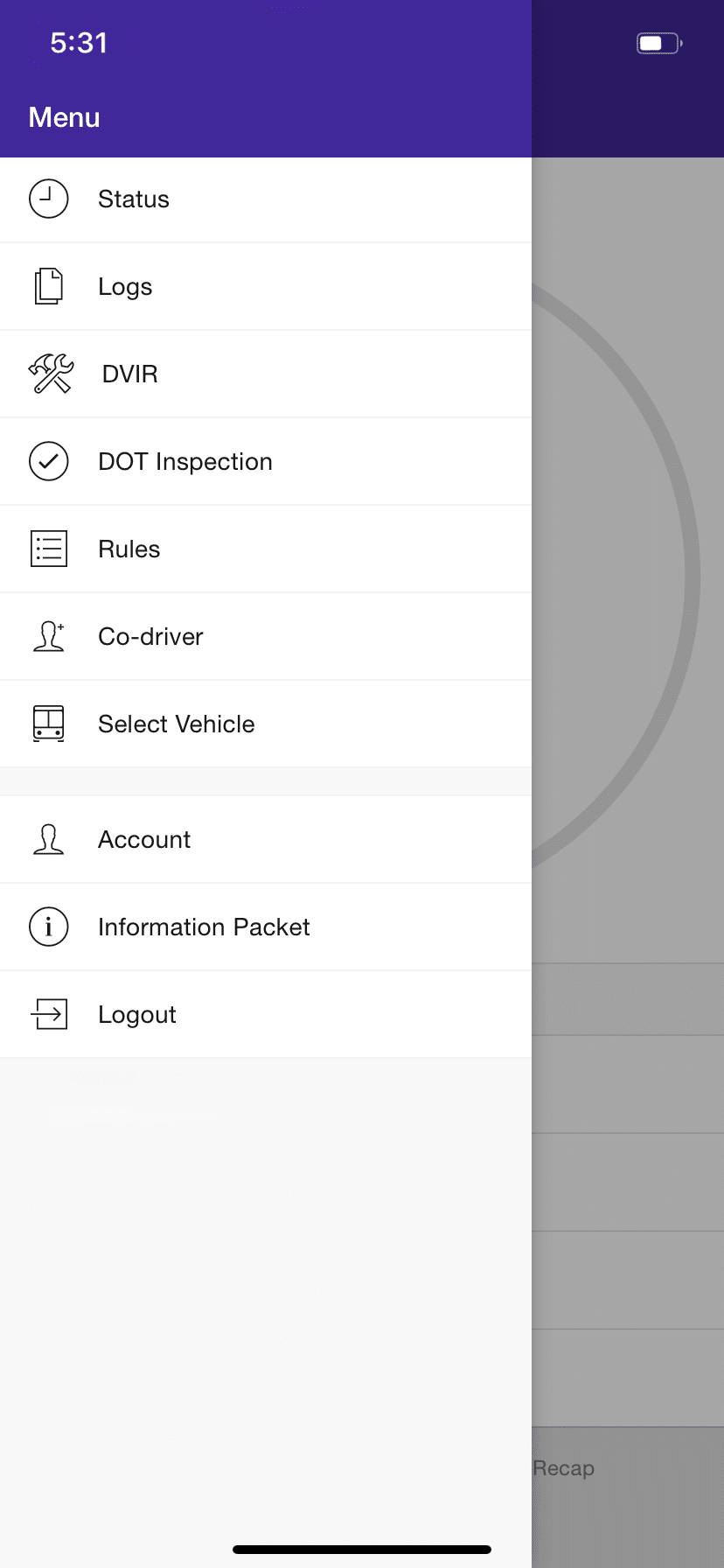
Required Paperwork for Each Exemption
Having the right documents is non-negotiable. Here’s a quick-reference list of what you need to have in your cab for each exemption:
- Pre-2000 engine. Your official vehicle registration document clearly showing the engine model year is pre-2000.
- Short-haul. While you don’t carry the timecard with you, you must be able to explain your exemption, and your motor carrier must produce your time records upon request.
- 8-day RODS. Copies of your paper logs for the days you were required to keep them within the last 30 days.
- Agricultural commodity. Shipping papers (bill of lading) identifying the commodity, the source, and the destination.
- Driveaway-towaway. The contract, invoice, or bill of lading for the vehicle being delivered.
- Rental vehicle. A legible copy of the rental agreement showing the start date and duration of the rental is less than 8 days.
Best Practices for Roadside Inspections
- Be prepared. Keep your documents in a dedicated, easy-to-access binder or folder. Fumbling through a messy glove box creates a bad first impression.
- Be clear and concise. When an officer asks for your logs, state clearly and politely which exemption you are operating under and be prepared to hand them the relevant documentation.
- Digital vs. paper. While paper copies are the gold standard, digital copies (like a PDF on a tablet or phone) are often acceptable. However, technology can fail. It is always wise to have a paper backup of your critical documents.
The most common documentation mistake is simply not having the proof in the vehicle. Always double-check that your registration, shipping papers, or rental agreement is in the cab before you start your trip.
State-Specific and Cross-Border Considerations
While the ELD mandate and its exemptions are set at the federal level by the FMCSA, the reality is that enforcement happens at the state line. It’s a mistake to assume that every rule is interpreted and enforced identically from one state to the next. For drivers operating in multiple states or across international borders, an extra layer of diligence is required.
- Variations in enforcement. State and local law enforcement are the primary enforcers of FMCSA regulations. Some states may have a stricter focus on HOS compliance during inspections. For this reason, having your exemption documentation perfectly in order is your best defense. Never assume an officer in a different state will be as lenient as one you’ve encountered before. The rules are the same, but the enforcement culture can vary.
- State-determined agricultural seasons. The agricultural exemption is a powerful tool, but its application during “planting and harvesting seasons” is not uniform across the country. Each state’s Department of Agriculture defines these dates independently. The season for harvesting corn in Iowa is different from the citrus harvest in Florida. You must verify the specific, official dates for any state you operate in, as they can change from year to year.
- Cross-border operations. Relying on a US federal exemption ends the moment you cross an international border.
- Canada. Canada has its own federal ELD mandate, which is similar but not identical to the US rules. Canadian regulations have different technical standards and specific requirements for cross-border carriers.
- Mexico. Mexico has its own distinct set of Hours of Service regulations that do not mirror those in the United States.
If your operation involves crossing into Canada or Mexico, you must comply with their specific logging and HOS laws, where your US exemption may not apply.

The Hidden Costs of Relying on Exemptions
Operating under an exemption might seem like a straightforward way to save on the upfront cost of an ELD subscription. However, for many truckers and small fleets, relying on paper logs and manual processes comes with significant hidden costs that can impact your time, your money, and your ability to grow. Before you decide to forego an ELD, consider the real price of sticking with the old way of doing things.
- The administrative burden. Paper logs are time-consuming. The minutes you spend every day filling out a grid, calculating your available hours, and fumbling with paperwork add up quickly. This is valuable time that could be spent driving, performing maintenance, or finding your next profitable load. Furthermore, you are legally required to store six months of these logs, creating a clutter of paperwork that must be meticulously organized.
- The high risk of errors and violations. Humans make mistakes. A simple math error, messy handwriting, or a forgotten signature on a paper log can easily lead to a form-and-manner violation during an inspection. These violations are not just warnings; they come with hefty fines and, more importantly, they add negative points to your Compliance, Safety, Accountability (CSA) score, potentially raising your insurance premiums.
- Lost operational insights. A paper log tells you one thing: your hours. A modern ELD system tells you a story about your entire operation. Without it, you’re missing out on valuable data that could make your business more profitable, such as tracking idle time to reduce fuel costs, using GPS data to optimize routes, or receiving diagnostic alerts before a minor issue becomes a major breakdown.
- Challenges to scalability. As an owner-operator, managing one paper logbook might be a hassle. Now imagine trying to manage the compliance for three, five, or ten trucks. The administrative work, risk of violations, and lack of oversight multiply with every vehicle, making it incredibly difficult to grow your business efficiently.
Ultimately, these factors transform what seems like a simple cost-saving measure into a significant business liability. This raises a critical question: even if you qualify for an exemption, is relying on one truly the smartest move for your business’s future?

When to Consider ELDs Despite Elog Mandate Exemptions
The choice to use an ELD isn’t always about mandates; it’s about running a smarter, safer, and more profitable business. For many exempt owner-operators and fleet managers, the operational advantages of adopting an ELD far outweigh the freedom of running on paper logs. Moving to an electronic system is a strategic upgrade for any modern trucking operation.
- Operational efficiency. An ELD automates your Hours of Service logging, saving you valuable time every single day. But the benefits go far beyond that. Top-tier electronic logbooks provide GPS tracking to optimize routes, monitor idle time to cut fuel costs, and track mileage to simplify IFTA reporting. It turns a compliance tool into a powerful business management asset.
- CSA score improvements. Paper log violations are some of the easiest and most common reasons for a negative mark on your CSA score. Elogs virtually eliminate the risk of form-and-manner violations, simple math errors, and messy logs. A clean record and a better CSA score can lead to fewer inspections and lower insurance premiums.
- Future-proofing your operation. Regulations can and do change. An exemption that applies to you today might be modified or eliminated in the future. Furthermore, many brokers and shippers now require ELDs for all carriers they work with, regardless of their exemption status. Having an ELD ensures you are ready for any rule change and eligible for every load.
- Partial fleet considerations. If you run a fleet where some trucks are exempt and others are not, managing two different systems for HOS tracking is inefficient and confusing. Standardizing your entire fleet on a single, user-friendly ELD system simplifies training, monitoring, and overall compliance management for your entire operation.
In short, voluntarily adopting an ELD is an investment in stability and growth, protecting you from risk while unlocking new efficiencies.

HOS247 ELD: The Reliable Choice for Truckers
Choosing to upgrade from paper logs is a big step, and picking the right ELD partner is critical. You need a solution that is reliable, easy to use, and backed by a team that understands the pressures of the road. HOS247 is designed specifically for truckers who value dependability and straightforward service without the usual headaches.
We’ve built our reputation on providing a top-rated service that puts drivers first. Here’s what makes HOS247 the preferred choice:
- Top-rated multilingual support. When you need help, you need it now. Our expert support team is available any day of the week, speaking English, Spanish, Polish, and Russian. You’ll talk to a real person who is ready to help you resolve issues quickly so you can stay on the road.
- Flexible no-contract policy. We believe in earning your business every month. Unlike other providers that lock you into long, restrictive contracts, HOS247 offers a flexible, no-strings-attached policy. You can scale your plan up or down as your business needs change.
- Durable hardware with warranty. Our ELD hardware is built to last and is easy to install in minutes. We stand by our product with a hassle-free, one-year hardware warranty. If it fails, we replace it.
- More than just compliance. The HOS247 system is an all-in-one platform. It includes real-time GPS fleet management, idle time tracking, vehicle diagnostics with fault code detection, and automated IFTA mileage calculations to make your life easier.
- Transparent and fair pricing. We offer clear, upfront pricing with no hidden fees. You get a top-quality ELD solution at an honest price.
- Easy transition and risk-free trial. Our app is designed to be intuitive and user-friendly, making the switch from paper logs seamless. Better yet, you can try HOS247 for yourself with our two-week, risk-free trial. If you don’t like it, simply return it for a full refund.
HOS247 is more than just a piece of hardware; it’s a complete support system for your operation. We provide the dependable technology and the responsive, expert support you need, giving you the peace of mind to focus on what you do best: driving.
Conclusion
Navigating the world of elog mandate exemptions requires a clear understanding of the rules, from the pre-2000 engine model year exception to the specific radius requirements for short-haul and agricultural operations. As we’ve covered, knowing if you qualify is only half the battle. The other half is maintaining flawless documentation, as this is your only defense against costly fines and violations during a roadside inspection.
While exemptions offer a path to operate without an ELD, the most successful and forward-thinking truckers understand that the right technology is an investment, not an expense. The benefits of improved efficiency, ironclad compliance, and deep operational insights make a strong case for upgrading your vehicle, even if it’s not mandated. You can protect your CSA score, save time, and unlock more profitable opportunities.
Don’t let outdated paper logs hold your business back. Take control of your compliance and efficiency today. Ready to see the difference a top-rated ELD can make? Start your two-week, hassle-free trial with HOS247 and discover why thousands of drivers trust us to keep them compliant and on the road.
A Note to Our Readers on Compliance
This article is intended for informational and educational purposes only. It is not a substitute for official regulatory guidance or legal advice. HOS and ELD regulations are complex and subject to change and interpretation by enforcement officials. Please always refer to official sources for the most current and accurate information.

As an expert in B2B and B2C sales, I’ve dedicated myself to perfecting sales processes and client retention strategies in the logistics and trucking industry. I have significantly contributed to the expansion of the ELD service, catering to retail and wholesale clients in need of HOS247 ELD solutions. My unwavering commitment to implementing state-of-the-art sales techniques and technologies ensures the continuous growth and success of businesses I work with.











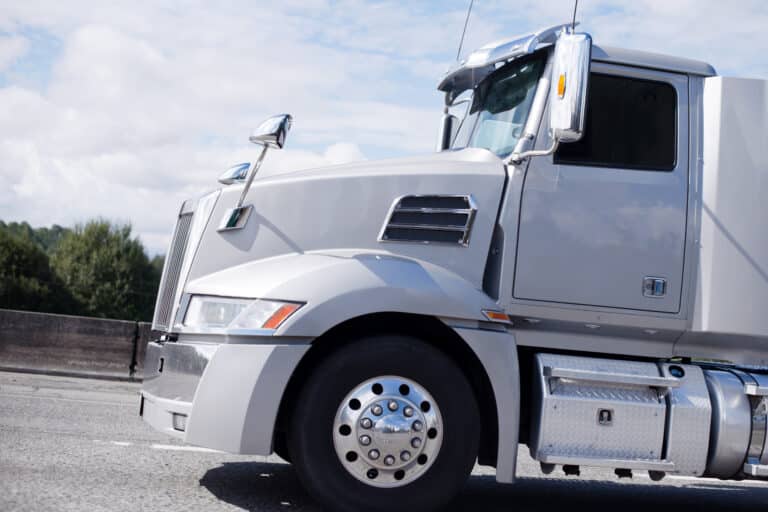
In an industry where time is money, owner-operators are constantly seeking the best tools to enhance their efficiency and ensure compliance with stringent regulations. Electronic logging devices (ELDs) have become a crucial part of this quest. However, navigating the vast
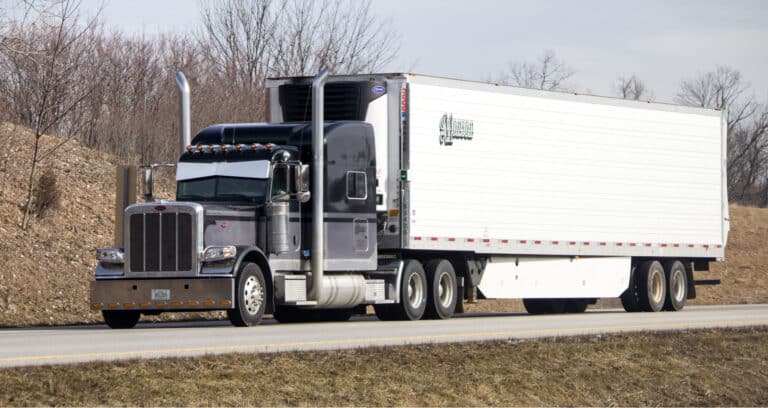
The main reason truck drivers need an ELD is to comply with the truckers electronic log law and accurately record their HOS. Apart from compliance, an efficient electronic logbook should also be a helpful tool to streamline daily tasks and
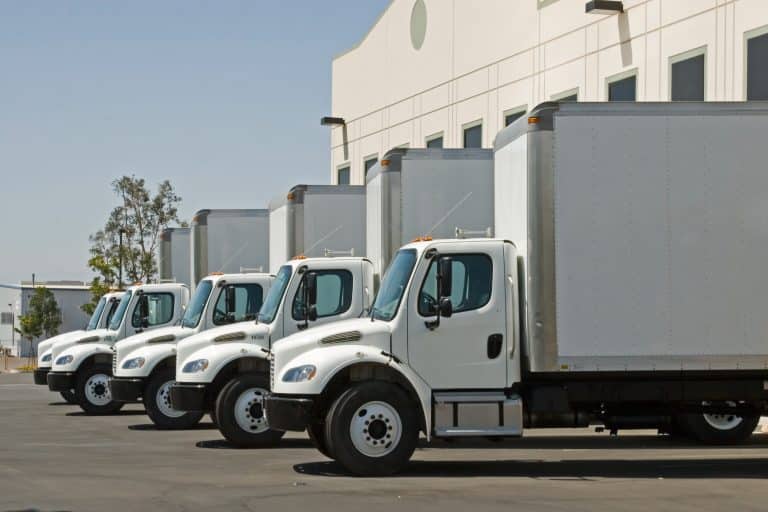
Managing a fleet of vehicles comes with its own set of struggles. Pinpointing the exact location of the vehicles at any given moment is essential to help improve communication, manage logistics, and even to protect the fleet from theft. Also,
